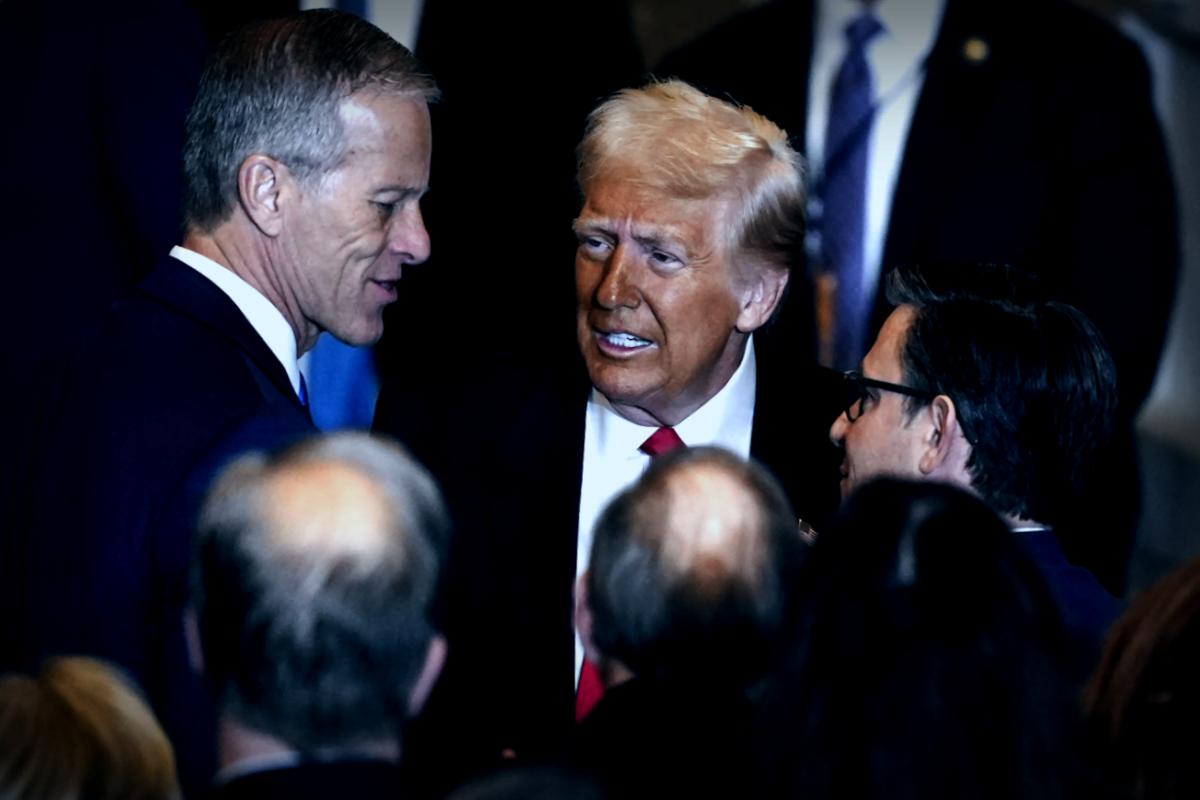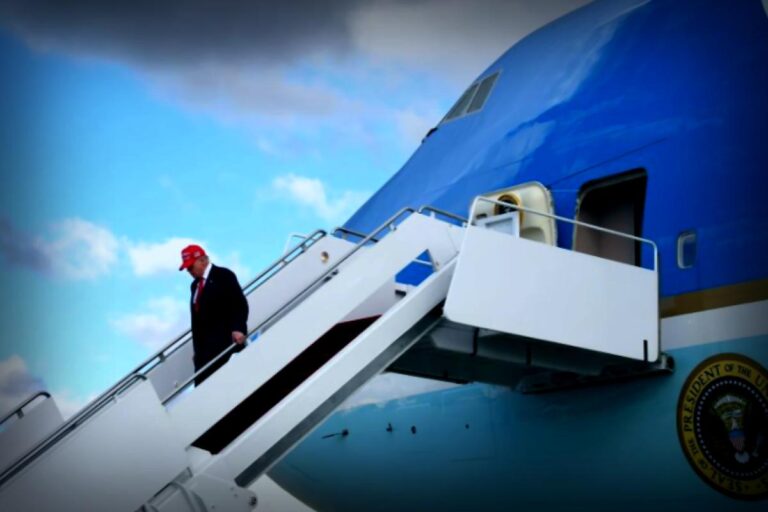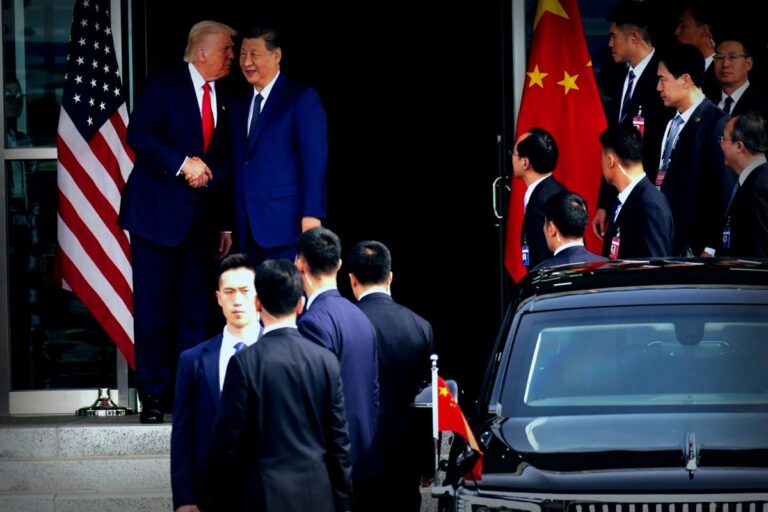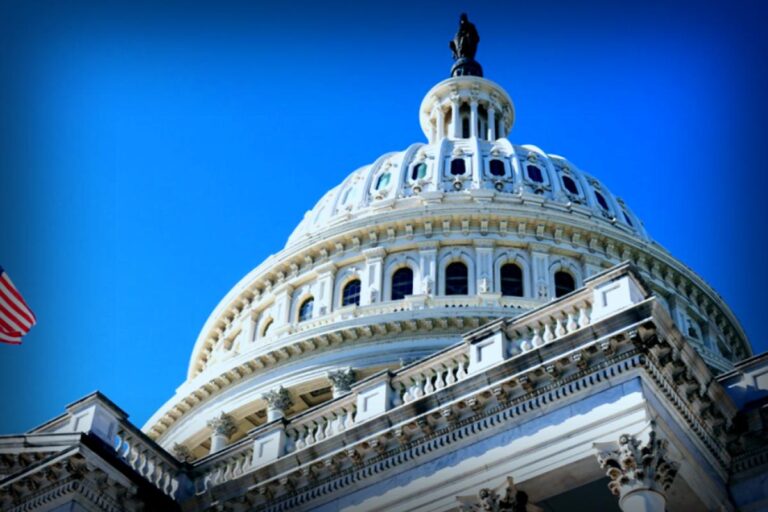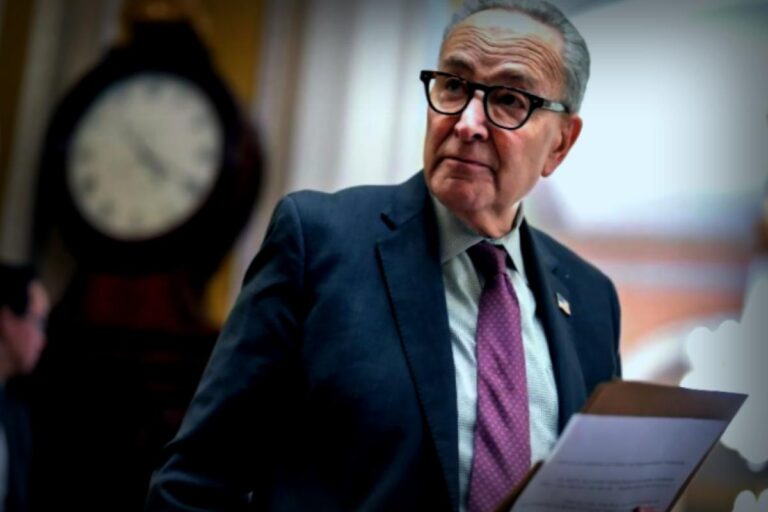In a bold move, President Donald Trump is calling on Senate Republicans to scrap the 60-vote filibuster rule, aiming to reopen the government without relying on votes from Democrats.
However, this initiative is facing atypical and swift pushback from Republicans themselves.
In his late-night social media posts, Trump declared, “It is time for the Republicans to play their ‘TRUMP CARD,’ and eliminate the filibuster—let’s do it NOW! Being in power means we should address this ridiculous government shutdown immediately!” He believes this could resolve the ongoing crisis.
Despite the president’s strong words, prominent Republican leaders have come out in defense of the conservative filibuster rule. New Senate Majority Leader John Thune from South Dakota assured that the 60-vote legislative rule will stay put under his leadership.
Thune’s spokesperson confirmed, “Leader Thune is still committed to preserving the legislative filibuster.” He isn’t alone, as Senate Majority Whip John Barrasso also stands by the filibuster.
The debate around the filibuster was already heating up on Capitol Hill even before Trump’s remarks. Following the government shutdown, Senator Bernie Moreno from Ohio made headlines appeared on Fox News advocating for the removal of the filibuster.
But many Republicans are firmly against such a move. Senator Jon Husted, also from Ohio, stated, “That’s not what we should do right now.” Meanwhile, Senator Thom Tillis from North Carolina, an outspoken critic of abolishing the filibuster, remarked that he sees no reason why things would change now that Trump has raised the issue.
Senator Roger Marshall from Kansas also voiced his opposition to diluting the legislative filibuster for the funding bill, declaring, “That’s a total no-go.”
Senator Markwayne Mullin from Oklahoma added, “I will absolutely not support getting rid of the filibuster,” specifying that only limited measures to prevent future shutdowns might spark his interest.
While both parties have seen the 60-vote requirement waived for confirming executive appointments and federal judges lately, most legislation still calls for the support of at least 60 senators to overcome filibuster challenges.
Since 1975, pushing for cloture in the Senate, which allows for moving forward with the vote, has required 60 votes. Republican senators are wary of completely getting rid of this safeguard for legislation tomorrow. They believe losing that threshold could pave the way for a more powerful Democratic agenda.
Thune stated that the 60-vote requirement has historically served as a buffer against hasty decisions that could negatively impact the country. He suggested that a Democrat majority could undo many prescriptive changes, such as making D.C. and Puerto Rico states or expanding the Supreme Court.
House Speaker Mike Johnson supports the preservation of the filibuster but maintained that decisions in the Senate remain separate from the House, where such rules differ.
Democrat Senator John Fetterman from Pennsylvania pointed out the contradictions where Republicans campaigned against abolishing the filibuster but might want to reconsider for future government funding provisions.
Democrats are pushing Republicans further to either eliminate the filibuster altogether or continue bipartisan negotiations. Congressman Chris DeLuzio suggested that if Republicans didn’t want to collaborate, they should consider killing the filibuster to more swiftly handle government funding.
In a broader sense, Trump indicated that Democrats previously tried to topple the filibuster for their voting rights legislation in 2022 but fell short of gaining the required majority to change Senate rules.
Trump warned that if Democrats regain power, they might utilize the same tactic against the GOP without any restraint.
Two weeks after his initial suggestion, Moreno conceded he hasn’t made headway convincing fellow Republicans to support the filibuster’s elimination.





